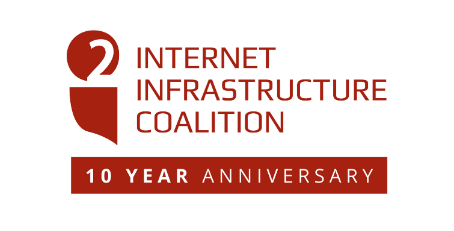Earlier this month, several prominent copyright holder groups sent their annual “notorious markets” recommendations to the U.S. Trade Representative (USTR).
The U.S. Government uses these documents as input for its yearly review of notorious piracy markets, which aims to provide an overview of threats to various copyright industries.
The recommendations, including those from the RIAA, MPA, and ESA, traditionally focus on well-known piracy sites such as The Pirate Bay and Fmovies. Increasingly, however, third-party technology providers are also being added to the mix.
Notorious Intermediaries?
For example, domain registrars and hosting services are regularly called out, and the same is true for advertising and payment companies. Cloudflare has been frequently mentioned as well, although it’s not officially listed since the overview focuses on foreign entities.
While some of these intermediaries help to facilitate piracy, not everyone agrees that they are notorious piracy markets. Mentioning them in the same breath as criminal enterprises can indeed cause some confusion.
The above summarizes the viewpoint of the Internet Infrastructure Coalition, i2Coalition for short. The industry group represents key Internet companies and counts Amazon, Cloudflare, GoDaddy, Google, OVH, Verisign, and many VPN services among its members.
i2Coalition Calls For Clarity
The i2Coalition’s submission to the USTR notes that its members value copyright protection efforts but cautions against making the “notorious markets” definition too broad. In any case, the USTR should ensure that neutral intermediaries are not included.
Internet infrastructure companies are not marketplaces, they don’t manage content directly, and can’t easily remove infringing content, the coalition says. The USTR should keep this in mind and reflect this distinction in its final report.
“Why Internet intermediaries are not notorious markets is not just a semantic difference. It is crucial to understand the underlying technologies and limitations when discussing the obligations of providers,” i2Coalition writes.
“For instance, DNS and cybersecurity service providers, like some i2Coalition companies, route requests through a globally distributed network. Their technology creates the pathway between a series of numbers and signals and the ‘web’.
“By their nature, these businesses have limited access to the content information they transmit; they lack the capacity to access it or make qualitative analyses or judgments about it,” the coalition adds.
Congress Could Step In
While the USTR’s most recent reports haven’t listed these neutral Internet infrastructure intermediaries as notorious markets, they regularly feature in copyright holder submissions. This undermines the effectiveness of the annual reviews, the coalition warns.
The i2Coalition would like the USTR to work on a narrower definition of the term “notorious market”. An even better solution would see Congress getting involved to rewrite the definition to make sure that neutral Internet infrastructure companies can carry on their business without piracy accusations.
With more clarity, i2Coalition hopes that neutral intermediaries will no longer be added to the “notorious markets” category.
“This lack of clarity in the past few years has tended to result in numerous parties filing comments with USTR as part of this process alleging infringement and proffering submissions to the notorious markets list either erroneously or in a manner intentionally meant to mischaracterize those who are responsible for the alleged violations.”
The letter doesn’t mention specific companies or services the coalition believes were mistakenly called out. However, the coalition makes it clear that it is essential to clear up what a ‘notorious market’ actually is in today’s digital economy.
—
A copy of the letter, signed by the Internet Infrastructure Coalition’s Executive Director Christian Dawson, is available here (pdf)
 Earlier this month, several prominent copyright holder groups sent their annual “notorious markets” recommendations to the U.S. Trade Representative (USTR).
Earlier this month, several prominent copyright holder groups sent their annual “notorious markets” recommendations to the U.S. Trade Representative (USTR).



